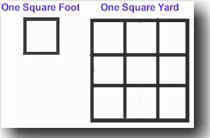How To Choose New Flooring Like A Pro!
Recommended Local Flooring Stores
(Free Information by Consumer Advocate - No Carpet or Flooring Sales)
Everyone Wants Soft Carpet!
And it must be durable, pet friendly, resist stains and last a long time! If you're in the market for new carpeting but don't know where to start, the Carpet Professor provides free unbiased product information and advice for consumers. FREE!
Saving time & money doesn't matter if you end up with a low-quality carpet and a shoddy installation job! My website provides everything you need to make sure you choose wisely and get the entire job done right the first time!
"I retired after 30+ years in the Carpet business and no longer sell or install Carpet. Now I enjoy teaching homeowners how to choose wisely, avoid retail sales scams and have a safe & successful Carpet Buying Experience!" Alan Fletcher aka "The Carpet Professor"
Homeowners should understand the entire carpet buying process, including:
How to Select the Right Grade of Carpet
Locate & Understand Carpet Specifications
Ensure Your Carpet is Installed Correctly
Carpet Care & Maintenance Requirements
Avoid Common Retail Carpet Sales Scams
Obtain Accurate Room Measurements, Verify
Shop at a Reputable, Locally-Owned Carpet Store!
Carpet Comparison
Buying new carpet is a major purchase and it is important that you take your time making your final selections. Don't allow any salesperson to pressure you into buying before you've had a chance to comparison shop and consider all your options.
Getting several free in-home estimates (from reputable retailers) is the easiest and best way to compare products and services, verify measurements and cost. Your goal should be to find the perfect carpet, order the necessary amount, have it installed correctly, and buy from a reputable dealer.
Even if the carpet and padding at each store is identical, the store with the lowest price may not be the best deal for you. I would be willing pay a bit more to get superior service and qualified installation then to take chances just save a few bucks.
Start by printing or downloading all my free Carpet Shopping Guides and Forms. They are designed to help you choose wisely, save time & money and narrow down your final choices. When you are ready to head out and visit a few carpet retailers and browse their showrooms, consider my list of recommended Carpet Stores I've located near you.
Homeowners often make simple but costly mistakes, like...
Choosing The Wrong Grade of Carpet... Carpet that does not meet their needs or goals.
Overpaying for Materials & Labor... Because they don't compare at least 3 bids or estimates.
Have Carpet Installed improperly... Because they don't buy from a reputable carpet dealer.
Accidentally Voiding Their New Carpet Warranty... Because they fail to maintain their new carpet as required.
There are plenty of ways to make costly mistakes when it comes to choosing new carpet and flooring. You shouldn't rely on any one salesperson to make your carpet and padding choices for you. If you do, and your new carpet does not perform as well as expected, you can't go back and blame the salesperson for giving you bad or wrong advice. Once you agree to buy it, you are stuck with it whether or not you are happy with its performance.
Some folks make the mistake of choosing new carpet based solely on cost, color, style or feel. You have to dig quite a bit deeper than that to make sure you choose the right carpet that will serve you best. Everything you need to know is here in my website. Do your carpet and padding research before you begin shopping for new carpet. To get started, there are five main carpet specifications you need to consider very carefully. Read on...
Carpet Fiber Options
Choosing the right grade of carpet is not as easy as it once was. Today there are dozens of different styles, grades and quality levels to choose from. Carpet durability is based mainly upon the raw materials they use in the manufacturing process. Why do some Carpets last longer than others?
Understanding carpet specifications is secret #1 to choosing new carpet like a pro! The type of fiber you choose is the most critical factor when choosing new carpet. Choosing the right fiber is the First Decision you need to make. Which Carpet Fiber will be the perfect choice for your home? Here is some key information about carpet fibers.
Fiber Basics:
Nylon is the most durable synthetic fiber available today. The two most popular nylon fibers are Anso 6.0 and Antron 6.6. Nylon is very resilient which is why it resists matting and crushing of the pile better than all other fibers. Nylon resists stains and cleans easily too but it is not as soft to the touch as Polyester. Nylon is also the most costly of all synthetic fibers. Nylon can be color dyed. $$$
Soft Nylon - Spend a little more and you can get a softer feel. The popular "soft" nylon styles are created by extruding the fiber strand thinner to make it feel softer. A thinner strand is not as strong which makes this option less durable than a standard nylon fiber. Some folks are willing to pay more to get a nylon with softer feel and be more durable. $$$$
Sorona / PTT (aka Triexta or Smartstrand by Mohawk) is best known for its softness and stain resistance. Originally invented in the 1940's, it was finally made available in the marketplace in year 2000 when the cost became comparable with nylon. Not as durable as nylon. $$$
Polyester and PET is a less costly option but tends to mat down quickly in medium to heavy traffic applications, especially along main walkways, busy thoroughfares like hallways and stairs. Polyester is very soft and stain resistant, but not as durable as Sorona. $$
Olefin (aka Polypropylene) is a very strong fiber and is commonly used for inexpensive looped Berber styles, outdoor grass and level-loop or cut-pile commercial grade carpets. It's also great for damp pool areas, basements and patios because it is moisture resistant. $$
Wool is the most costly of all fibers easily topping $100 per square yard. It is naturally soft and a durable fiber. It is more costly to install and maintain too, but is well known for it's elegance and ability to last a lifetime if cared for properly. Not a good choice for areas with active children and pets.
How Much Does Carpet Cost?
If you haven't checked carpet prices lately, you'll be shocked when you see the current prices for good quality carpet and padding. Ten years ago, a medium-quality carpet, with pad and installation, used to run about $35.00 per square yard, today that same quality is over $50.00 ($5.55 per sf). A medium-quality 100% Nylon Carpet for a typical 2-bedroom home (100 sy or 900 sf) now averages $5700 with pad and installation. You can expect it to last 7 to 12 years depending on your level of foot traffic. Nylon Carpet Cost vs. Longevity
Carpet Measuring Explained
Measuring for carpet can be a bit confusing because there are three different ways it can be figured and sold. Carpet was originally sold by the square yard (SY). Then in the 1980's to help make it easier for homeowners to figure, they began selling carpet by the square foot (SF). Some carpet retailers prefer to sell carpet by the Linear Foot (LF) although this is not common.
For Example:
One square foot is 12" inches wide by 12" inches long
One square yard is 36" inches wide by 36" inches long
One square yard is equal to 9 square feet. (see diagram)
100 square yards is the same as 900 square feet. (100 sy x 9 = 900 sf)
1 lineal foot of carpet is equal to 12 square feet (as most rolls of carpet are made 12' feet wide)
Square feet is figured by multiplying the room width by the length in decimal form. A 10' foot x 10' foot room is equal to 100 square feet. (Decimal Equivalents - 3" inches = .25, 6" inches = .50, 9" inches = .75) So a room that measures 10' 3" x 11' 9" would be put into decimal form like this: 10.25 x 11.75, equaling 120.44 square feet. To figure the square yardage just divide the square footage by 9. (120.44 ÷ 9 = 13.38 square yards.)
When you buy carpet by the Lineal Foot it means you are being charged for the length only. The width is a constant. Most rolls of carpet are 12' feet wide so if you buy 10' lineal feet you are getting a piece of carpet that is 12' feet wide by 10' feet long. If the retail price is $10 per lineal foot then the cost for a 12' wide x 10' long piece of carpet would be $100. (10 lineal feet x $10 = $100) Learn more: How to Measure for Carpet in 4 Simple Steps
What is your level of Foot-Traffic?
To avoid choosing the wrong grade of carpet, start by taking my free Carpet Foot-Traffic Test. It's a simple 6-question test to help determine your level of foot-traffic and be able to select the right grade or quality to meet your needs.
Families with active kids and pets tend to have heavy foot-traffic in their home. That means choosing a grade of carpet that is more durable. To choose a carpet designed to tolerate your level of foot traffic, you first need to determine your level of foot traffic. Combine that with the number of years you expect your new carpet to last and you have a starting point for making wise choices.
1. What is the level of foot-traffic in your home? Low, Medium, Moderate, Heavy?
2. How long you want your new carpet to last? 5, 10, 15, 20 years or more?
Carpet cost, quality, durability and longevity are all inter-connected. Combine all that with your own unique level of foot-traffic and you can see how choosing the right grade of carpet can become a bit complicated.
Choosing the Right Grade of Carpet?
It's not like it was 50 years ago when choices were very limited and most carpets were made to last at least 20 years. Today there are hundreds of different grades, styles and quality levels to choose from. The trick is knowing which grade will be the best choice for your home. Some carpets are designed to wear out in less than 5 years, some are designed to take a beating and last for 20 years or more. Use my free Carpet Durability Guide Chart to help narrow down your choices.
What are Carpet Remnants?
Most carpet comes in rolls that are 12 feet wide and up to 100 feet in length. A carpet remnant is an amount of carpet that is less than a full roll. When part of the roll has been sold it leaves a balance still available for purchase, this is either called a carpet Remnant, Roll Balance or a Roll End. Few homeowners know that they can enjoy new carpet at a fraction of the typical cost for new carpet. The trick is knowing How To Choose Carpet Remnants Wisely.
Padding Types, Durability and Prices
You rarely see it, but carpet padding does a very important job. It is the shock-absorber for your carpet. It helps reduce the damaging effects of abrasion. It's real easy to select the wrong grade, type, thickness or density of pad. Most people trust the salesperson to select the right pad. This can spell disaster if you are ill-advised.
The cost of padding is going up. Ten years ago, a good quality 6-pound Rebond Pad cost about $3.50 per square yard (.39 per sf). Now it's over $5.00 (.55 per sf). Most carpet makers now recommend using 8-pound density padding and you can expect to pay over $6.00 per square yard (.66 to .88 per sf). This link shows the various types of carpet padding, current prices and which pad might be the best choice for your home. Carpet Padding Cost, Options and Upgrades Explained
The carpet you select has minimum padding specifications required by the carpet manufacturer, including type, thickness and density. Choose the wrong pad and you can instantly void your new carpet warranty. You don't want your padding to wear out before your carpet does. It would be wise to invest in a good quality pad that can easily outlive the lifespan of your carpet. Learn more about Choosing the Right Pad.
Unnecessary Padding Upgrades?
With most residential carpet styles, a good quality 6 pound, 7/16" Rebond style pad will usually be more than sufficient. You can expect 10 years of service before it starts to deteriorate. Upgrade to an 8 pound density and the lifespan will increase to about 15 years. This is the most economical and the most common way to go.
If the carpet you select is designed to last 10 years there is no reason to spend more for a pad designed to last for 20 years. That would be a waste of money. If you choose a carpet designed to last 20 years, you will need to upgrade to a higher density padding. They have 10 and 12 pound density pads available and other high-quality pads that will last 20 years.
Don't be easily swayed by a salesperson who says you need to spend more for an upgraded pad or Specialized Carpet Pad unless the carpet manufacturer requires it. To avoid over-spending, match your carpet quality with your padding quality. There is no need to upgrade your padding unless you are buying a higher-quality carpet.
Q. Can I save money by hiring an independent installer?
Yes, it is possible for you to save money by hiring an independent flooring installer. Some installers use various media outlets to help promote their services. They may be new to the area, starting a new business or just need to make some extra cash to cover their bills. Are they qualified and experienced enough with your type of job? You should use my simple Carpet Installer Questionnaire. It's designed to make sure you ask every potential independent installer 10 critical questions - then you can evaluate their answers to help narrow down your best choice, if any.
Even if you buy top quality carpet & padding, you won't enjoy the intended lifespan if installed improperly. Installation is one area where you should never skimp unless you understand the potential consequences! It can void your new carpet warranty, cut the carpet lifespan in half, cause waves & wrinkles to form, and force you to pay hundreds to have your carpet repaired and restretched. These are the most common issues caused by a bad installation job.
Carpet Installation Cost
Thirty years ago, it was common to pay $3 to $5 per square yard for qualified carpet installation. Installation alone for a typical 2-bedroom home (100 square yards) used to be less than $500. Today you can expect to pay closer to $800 or more depending on the layout of your home, where you live and the grade and style of carpet you select. Carpet Installation Cost and Extra Fees in 2024
Finding a qualified, well trained carpet installer is getting more difficult because there is a huge shortage of experienced carpet & flooring installers nationwide. That's why I suggest buying carpet from a reputable locally-owned flooring store who has their own "in-house" installation crew. Ask a package deal, that's where you pay the dealer for the carpet, pad and installation and they take care of handling everything from start to finish. It's easier for you and much safer than trying to locate and hire an independent installer. The most valuable benefit you get when the retailer arranges installation for you, is having just one number to call if you ever have a problem. How to Find a Qualified Carpet Installer?
Avoid Pushy Salespeople
Unscrupulous carpet retailers often hire salespeople who will say or do just about anything to convince you to buy from them right now! Many salespeople know very little about carpet or the flooring products they sell. They are hired because they are good at closing the sale. That means they don't take NO for an answer and keep pressuring you until you agree to buy.
This is yet another reason why I've compiled my own Special List of locally-owned carpet and flooring stores to recommend to my readers. They have helpful, knowledgeable salespeople, do accurate measuring and provide qualified installers to get the job done right the first time. Don't let obnoxious strong-arm salespeople push you around!
I don't blindly trust anyone's measurements. If you get three measures from different sources you can be sure that all three will be different. A little bit off is one thing, but if there is a huge difference (more than 5 square yards or 45 square feet) then someone has measured wrong. Not quite sure if your salesperson's measurements are accurate? It's always wise to get at least three bids/estimates from honest local carpet stores. Then you can compare prices and measurements side by side and make wise and informed choices. Want to learn some basic carpet measuring techniques? How to Measure for Carpet Yourself!
Shopping for Carpet at Home Depot or Lowe's?
Q. Should I Buy Carpet from Home Depot, Costco, Empire or Lowe's? Please don't fall for those TV commercials offering new carpet at ridiculously low prices! The free carpet installation lure is a common television advertisement by both Lowe's and Home Depot. How much does Free Carpet Installation really cost? There are many reasons why I don't recommend buying carpet from a home improvement warehouse. If you want a good deal on carpet or flooring, I suggest shopping at a Reputable Locally-Owned Carpet Store
Learn more:






